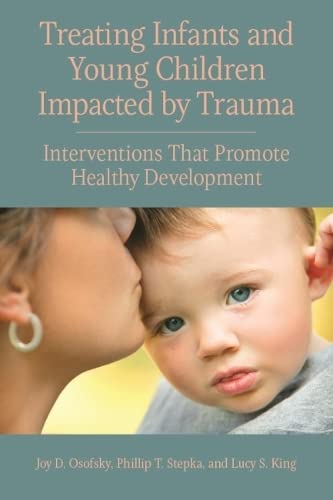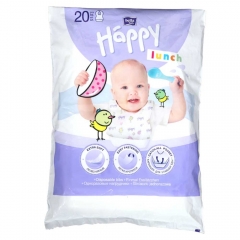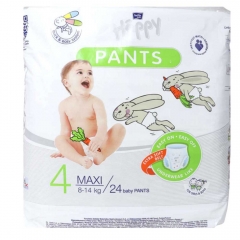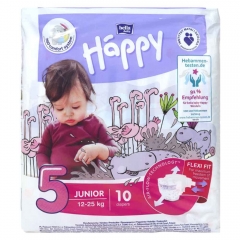-
 Thanh toán đa dạng, linh hoạtChuyển khoản ngân hàng, thanh toán tại nhà...
Thanh toán đa dạng, linh hoạtChuyển khoản ngân hàng, thanh toán tại nhà... -
 Miễn Phí vận chuyển 53 tỉnh thànhMiễn phí vận chuyển đối với đơn hàng trên 1 triệu
Miễn Phí vận chuyển 53 tỉnh thànhMiễn phí vận chuyển đối với đơn hàng trên 1 triệu -
 Yên Tâm mua sắmHoàn tiền trong vòng 7 ngày...
Yên Tâm mua sắmHoàn tiền trong vòng 7 ngày...
Treating Infants and Young Children Impacted by Trauma: Interventions That Promote Healthy Development (Concise Guides on Trauma Care Series)
-

- Mã sản phẩm: 1433827697
- (17 nhận xét)

- Publisher:American Psychological Association; 1st edition (May 15, 2017)
- Language:English
- Paperback:149 pages
- ISBN-10:1433827697
- ISBN-13:978-1433827693
- Item Weight:8.1 ounces
- Dimensions:6 x 0.5 x 8.75 inches
- Best Sellers Rank:#703,270 in Books (See Top 100 in Books) #986 in Medical Child Psychology #1,291 in Popular Child Psychology #1,655 in Popular Psychology Pathologies
- Customer Reviews:4.4 out of 5 stars 17Reviews

Mô tả sản phẩm
Product Description
This book provides clinicians with a comprehensive understanding of the different types of trauma experienced by infants and young children. It then evaluates the major treatments designed to address the effects of trauma and redirect children towards health development.
Infants and young children are vulnerable to multiple types of trauma, including neglect and sexual, physical, and emotional abuse. Some believe that young children are not impacted by trauma and that, if they are, they will simply “grow out of it.” Continuing research, however, clearly demonstrates that trauma can alter young children’s neurobiological development and place them at risk for behavioral, social, emotional, linguistic, and cognitive problems across the lifespan. Despite these alarming findings, there is increasing evidence that early interventions can foster recovery and enhance resilience.
Distinguished clinical and developmental psychologist Joy Osofsky and her coauthors distill the vast literature on childhood trauma in this concise guide that reviews what effects these traumatic experiences can have and which treatments are best suited for addressing them. They provide a detailed framework for selecting the most appropriate intervention based on specific criteria. Vivid case examples teach clinicians how to apply these treatments in real scenarios and support parents and caregivers as key attachment figures and sources of security in a child’s life.
Review
“Especially useful to clinicians and clinicians in training who serve parents and very young children affected by trauma.” —PsycCRITIQUES
About the Author
Joy D. Osofsky, PhD, the Paul J. Ramsay Chair of Psychiatry and Professor of Pediatrics and Psychiatry at Louisiana State University Health Sciences Center (LSUHSC) in New Orleans is both a clinical and developmental psychologist. She is Director of the LSUHSC Harris Center for Infant Mental Health. Among her scholarly achievements, Dr. Osofsky has written or edited 9 books including the Handbook of Infant Development and Clinical Work withTraumatized Young Children and is co-editor of the WAIMH Handbook of Infant Mental Health. Dr. Osofsky is past president of Zero to Three: National Center for Infants, Toddlers and Families and the World Association for Infant Mental Health. In 2016, she wrote the first chapter on Infant Mental Health in the Handbook of Clinical Psychology. She has played a leadership role in the Gulf Region in developing response and recovery efforts following Hurricane Katrina and the Deepwater Horizon Oil Spill. In 2007, Dr. Osofsky received the Sarah Haley Award for Clinical Excellence for trauma work from the International Society for Traumatic Stress Studies. In 2010, Dr. Osofsky was honored with a Presidential Commendation from the American Psychiatric Association for her work in the aftermath of Hurricane Katrina. Dr. Osofsky was recognized with the Reginald Lourie Award for leadership in the field of infant mental health and outstanding contributions to the health and welfare of children and families in 2014. She does research, intervention, and clinical work with infants, children, and families exposed to community and domestic violence, maltreatment, trauma, and disasters and is the clinical consultant for Safe Babies Court Teams for Zero to Three. Dr. Osofsky is currently Co-Principal Investigator for the Terrorism and Disaster Coalition for Child and Family Resilience, a National Child Traumatic Stress Network Center funding by the Substance Abuse and Mental Health Services Administration. She serves a key role in helping state and national legislators and policy makers understand the behavioral health needs of children, especially young children.
Phillip T. Stepka, PsyD, is an Assistant Professor of Clinical Psychiatry at LSUHSC and serves as teaching faculty for the Harris Center for Infant Mental Health at LSUHSC. His interests include trauma throughout the lifespan, child maltreatment, infant mental health, fetal alcohol effects/syndrome, pervasive developmental disorders, sexual abuse and sexual behavior problems, and risk and resiliency factors in military families. Dr. Stepka serves as Project Coordinator for the LSUHSC site for the SAMSHA funded Early Trauma Treatment Network (ETTN), a center in the National Child Traumatic Stress Network (NCTSN). He is a Child-Parent Psychotherapy (CPP) National Trainer and consults on adaptations of other evidence-based practices for young children across the country. Dr. Stepka provides evaluative, therapeutic, and consultation services to military children, their families, and educators at the Belle Chasse Naval Air Station/Joint Reserve Base in South Louisiana. He also collaborates with the military’s Family Advocacy Program (FAP) in developing and implementing resilience-building interventions for young children with deployed caregivers and providing multi-disciplinary treatment to military families impacted by abuse, neglect, and domestic violence.
Lucy S. King, BA, is currently a PhD student in the Department of Psychology at Stanford University, where she studies the impact of environmental adversity on psychobiological development from the first months of life through adolescence. Her areas of interest include novel methods for measuring positive and negative aspects of the early environment and the effects of caregiving behavior on the development of stress response systems. She has previously held research positions in the Department of Psychiatry at Boston Children’s Hospital and at Louisiana State University Health Sciences Center. Ms. King has published and presented peer-reviewed research clarifying the associations between caregiving, early stress exposure, and biological reactivity and regulation in infancy and childhood. She has also conducted research on developmental psychopathology in children and adolescents exposed to natural and technological disasters. She is the recipient of a Graduate Research Fellowship from the National Science Foundation.
- Mua astaxanthin uống có tốt không? Mua ở đâu? 29/10/2018
- Saffron (nhụy hoa nghệ tây) uống như thế nào cho hợp lý? 29/09/2018
- Saffron (nghệ tây) làm đẹp như thế nào? 28/09/2018
- Giải đáp những thắc mắc về viên uống sinh lý Fuji Sumo 14/09/2018
- Công dụng tuyệt vời từ tinh chất tỏi với sức khỏe 12/09/2018
- Mua collagen 82X chính hãng ở đâu? 26/07/2018
- NueGlow mua ở đâu giá chính hãng bao nhiêu? 04/07/2018
- Fucoidan Chính hãng Nhật Bản giá bao nhiêu? 18/05/2018
- Top 5 loại thuốc trị sẹo tốt nhất, hiệu quả với cả sẹo lâu năm 20/03/2018
- Footer chi tiết bài viết 09/03/2018
- Mã vạch không thể phân biệt hàng chính hãng hay hàng giả 10/05/2023
- Thuốc trắng da Ivory Caps chính hãng giá bao nhiêu? Mua ở đâu? 08/12/2022
- Nên thoa kem trắng da body vào lúc nào để đạt hiệu quả cao? 07/12/2022
- Tiêm trắng da toàn thân giá bao nhiêu? Có an toàn không? 06/12/2022
- Top 3 kem dưỡng trắng da được ưa chuộng nhất hiện nay 05/12/2022
- Uống vitamin C có trắng da không? Nên uống như thế nào? 03/12/2022
- [email protected]
- Hotline: 0909977247
- Hotline: 0908897041
- 8h - 17h Từ Thứ 2 - Thứ 7
Đăng ký nhận thông tin qua email để nhận được hàng triệu ưu đãi từ Muathuoctot.com
Tạp chí sức khỏe làm đẹp, Kem chống nắng nào tốt nhất hiện nay Thuoc giam can an toan hiện nay, thuoc collagen, thuoc Dong trung ha thao , thuoc giam can LIC, thuoc shark cartilage thuoc collagen youtheory dau ca omega 3 tot nhat, dong trung ha thao aloha cua my, kem tri seo hieu qua, C ollagen shiseido enriched, và collagen shiseido dạng viên , Collagen de happy ngăn chặn quá trình lão hóa, mua hang tren thuoc virility pills vp-rx tri roi loan cuong duong, vitamin e 400, dieu tri bang thuoc fucoidan, kem chống nhăn vùng mắt, dịch vụ giao hang nhanh nội thành, crest 3d white, fine pure collagen, nên mua collagen shiseido ở đâu, làm sáng mắt, dịch vụ cho thue kho lẻ tại tphcm, thực phẩm tăng cường sinh lý nam, thuoc prenatal bổ sung dinh dưỡng, kem đánh răng crest 3d white, hỗ trợ điều trị tim mạch, thuốc trắng da hiệu quả giúp phục hồi da. thuốc mọc tóc biotin























 KHUYẾN MÃI LỚN
KHUYẾN MÃI LỚN Hỗ Trợ Xương Khớp
Hỗ Trợ Xương Khớp Bổ Não & Tăng cường Trí Nhớ
Bổ Não & Tăng cường Trí Nhớ Bổ Sung Collagen & Làm Đẹp
Bổ Sung Collagen & Làm Đẹp Bổ Thận, Mát Gan & Giải Độc
Bổ Thận, Mát Gan & Giải Độc Chăm Sóc Sức khỏe Nam Giới
Chăm Sóc Sức khỏe Nam Giới Chăm Sóc Sức khỏe Nữ Giới
Chăm Sóc Sức khỏe Nữ Giới Chăm sóc Sức khỏe Trẻ Em
Chăm sóc Sức khỏe Trẻ Em Thực Phẩm Giảm Cân, Ăn Kiêng
Thực Phẩm Giảm Cân, Ăn Kiêng Bổ Sung Vitamin & Khoáng Chất
Bổ Sung Vitamin & Khoáng Chất Bổ Tim Mạch, Huyết Áp & Mỡ Máu
Bổ Tim Mạch, Huyết Áp & Mỡ Máu Bổ Mắt & Tăng cường Thị lực
Bổ Mắt & Tăng cường Thị lực Điều Trị Tai Mũi Họng
Điều Trị Tai Mũi Họng Sức Khỏe Hệ Tiêu hóa
Sức Khỏe Hệ Tiêu hóa Chăm Sóc Răng Miệng
Chăm Sóc Răng Miệng Chống Oxy Hóa & Tảo Biển.
Chống Oxy Hóa & Tảo Biển.